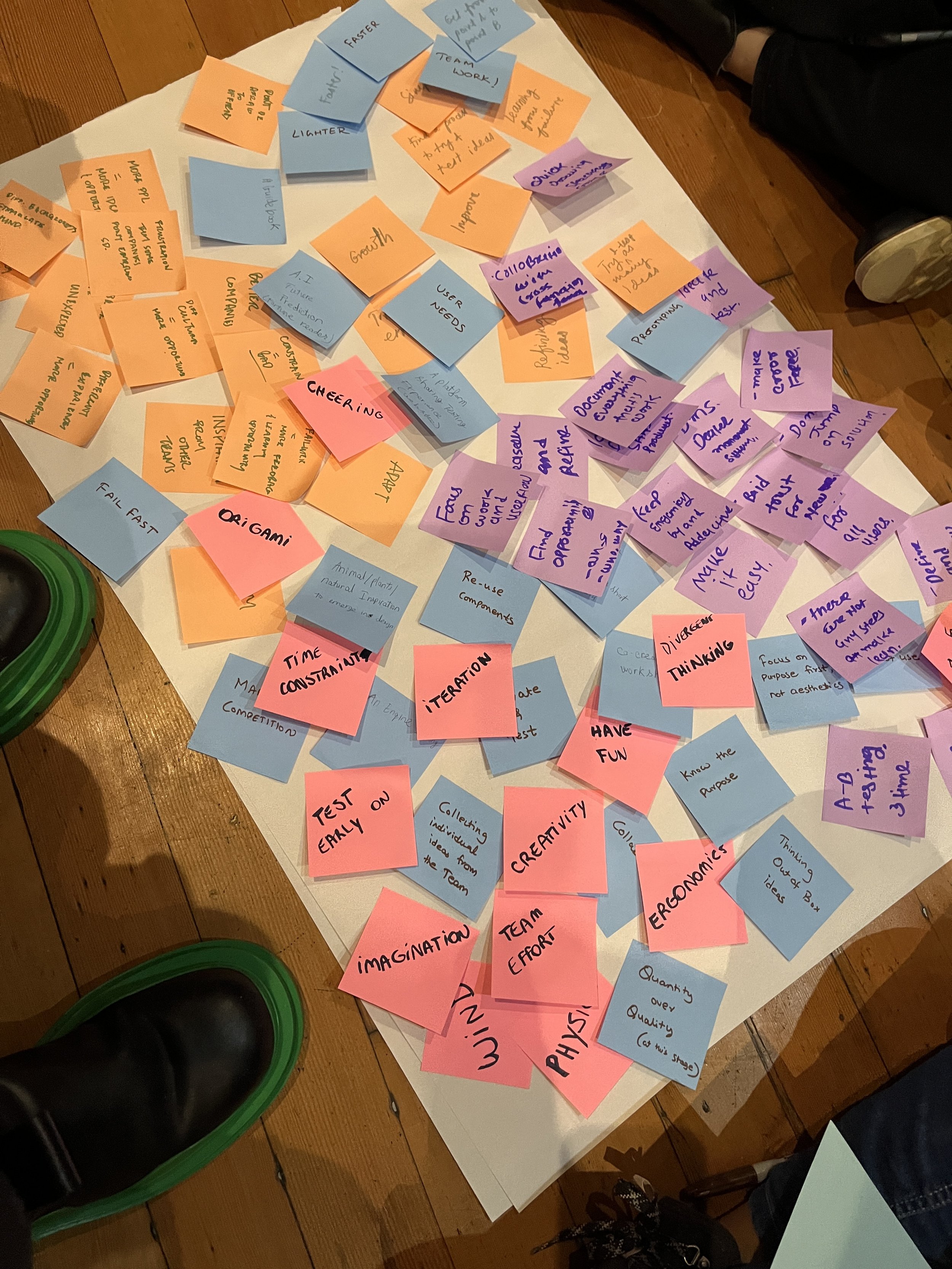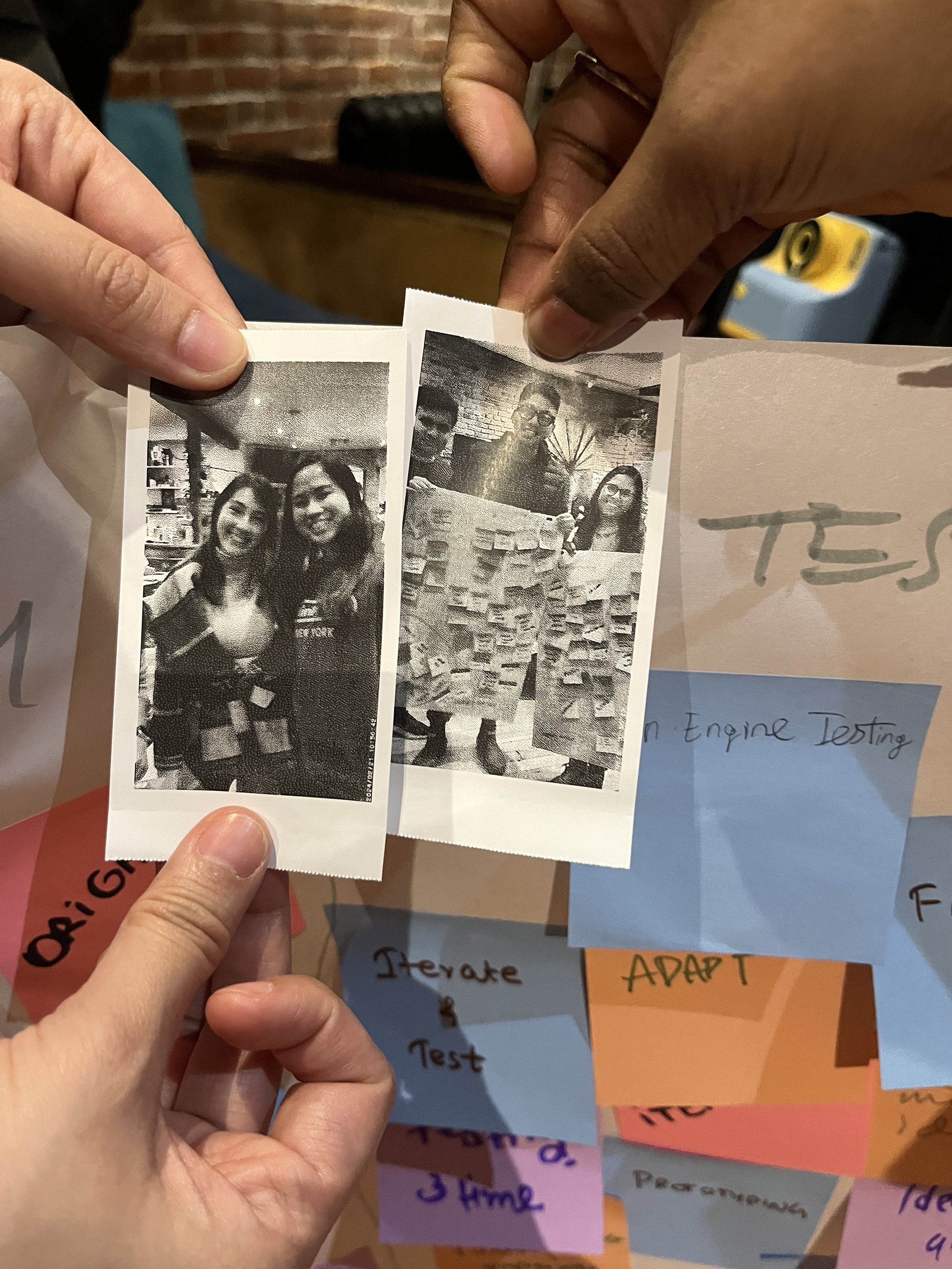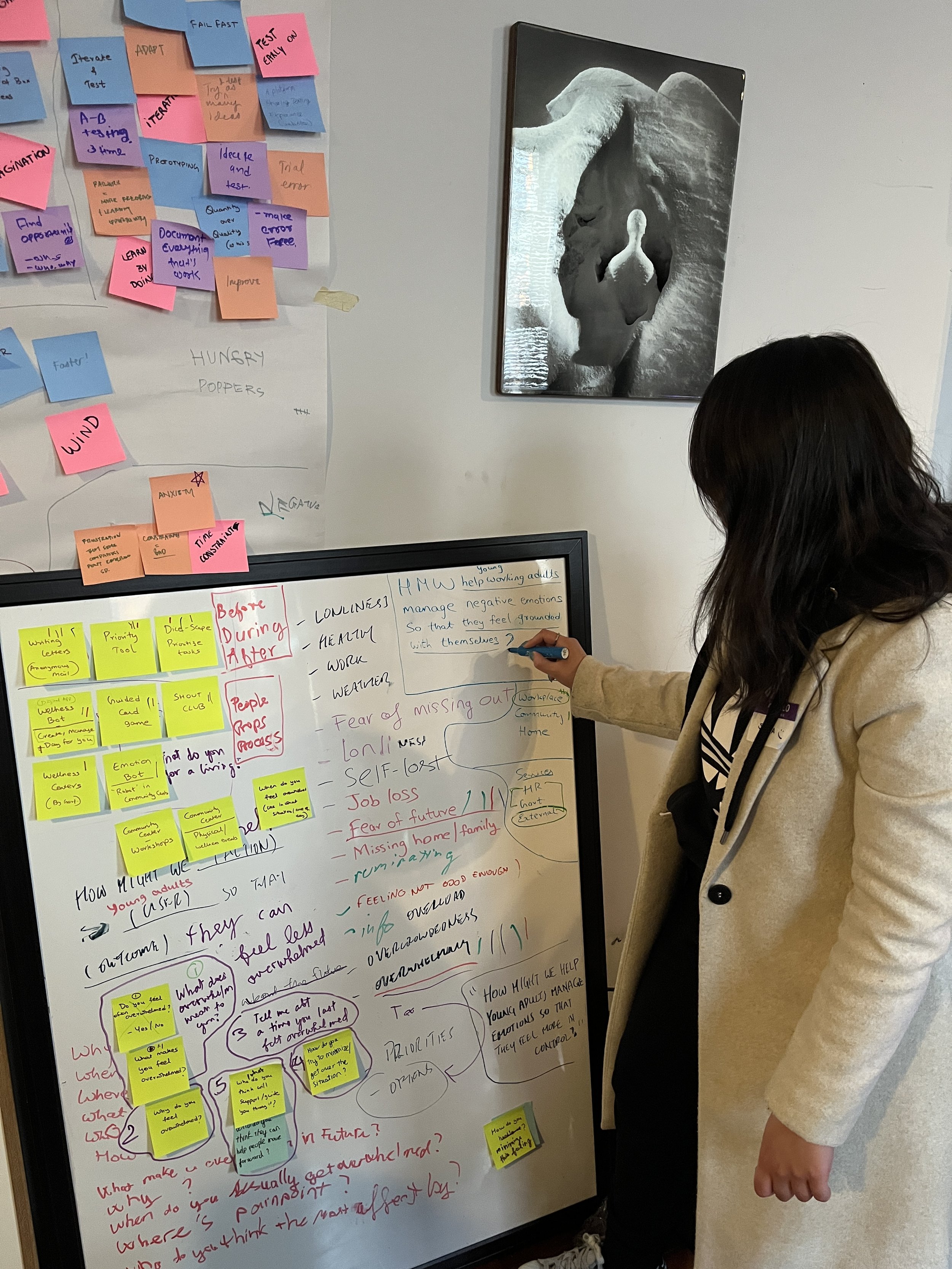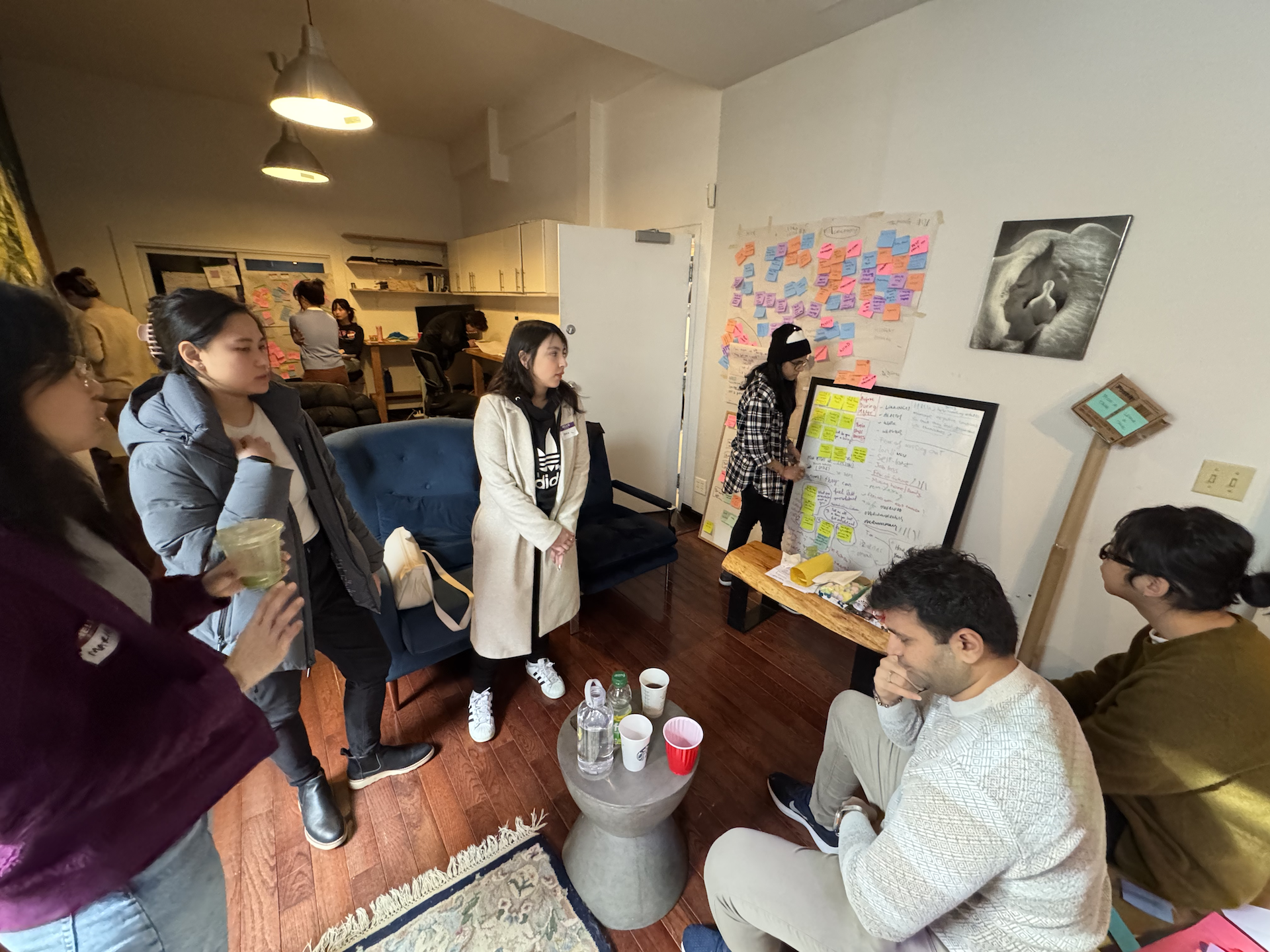February, 2025
Vancouver Service Jam
The Vancouver Service Jam was one of 44 participant locations in this year’s Global Service Jam, a hands-on event where teams collaborate to tackle real-world challenges using design thinking and service design methodologies. Over the course of 48 hours, participants form teams, conduct research, ideate, prototype, and test solutions—all inspired by a secret global theme. The goal isn’t just to talk about service design but to create tangible solutions that could potentially be developed further.
My Experience at the Vancouver Service Jam
Day 1: Team Formation & Theme Reveal
The event kicked off with introductions and a boat racing challenge! After teaming up with five other designers, we were introduced to this year’s secret theme: The Sailing Experience. Our first activity was to build and test a paper boat and fan, iterating based on performance in each race.
Using this as inspiration, we individually brainstormed topics and insights that emerged from the exercise. The sailing theme was only a starting point, and we were encouraged to diverge in any direction. We wrote down our ideas on sticky notes, then grouped them into common themes to explore further.
Day 2: Research & Ideation
After analyzing the common themes, our team voted on what we wanted to explore. The most popular theme was Anxiety, which we later refined to focus on Overwhelm.
We then worked on defining our problem statement:
💡 How might we help young adults so that they can feel less overwhelmed?
To validate our problem and understand user needs, we split into two groups and went out to interview people on the streets. Once back, we synthesized the responses, identified patterns, and refined our problem statement to be more specific:
💡 How might we help young adults manage their emotions so that they feel more in control?
With a clearer direction, we jumped into Crazy 8’s, rapidly sketching different solutions. After discussing and voting on ideas, my concept was selected: an anonymous letter library, similar to neighborhood book-sharing libraries, where people could leave and receive letters of support. However, after further discussion, we considered privacy and logistical challenges, leading us to iterate the idea.
Instead of exchanging letters, we pivoted to a task-based approach: a well-being task library, where individuals could pick up a small, uplifting task (e.g., “Take a walk in nature” or “Buy yourself a small treat”) and leave a new one for someone else. We built a prototype using cardboard, sticky notes, and pens and acted out the service flow for feedback.
Day 3: Refinement & Final Prototype
After presenting our idea to the Vancouver Service Jam participants, mentors, and judges, we received insightful feedback. We realized that our problem statement was still too broad, and our solution had drifted from our initial goal. We revisited our research and spoke with mentors, refining our problem statement again:
💡 How might we help young working adults manage negative emotions so that they feel grounded with themselves?
With this new focus, we redesigned our service concept: a wellness coffee shop service provided by an agency called Grounded, located in the lobbies of office buildings and funded by companies that prioritize employee well-being.
☕ Before the interaction: Employees feel stressed and overwhelmed at work. Posters in the office inform them about the Grounded café.
☕ During the interaction: Employees can visit the café for a free coffee or tea (paid for by the company). They can choose to relax in the common area or to drop-in a 15-minute session with a licensed counselor in a soundproof booth.
☕ After the interaction: Employees leave feeling more relieved, in control, and recharged to continue their workday.
To bring this concept to life, we built a prototype using coffee cups, sticky notes, paper, and chairs and performed an interactive roleplay to showcase the experience. The judges and mentors provided positive feedback on our final idea.
Final Thoughts
The Vancouver Service Jam was an intense but rewarding experience. Over the course of three days, my team and I worked through the full service design process, from uncovering insights to ideating, prototyping, and refining solutions based on user feedback. It was an incredible opportunity to:
✅ Collaborate with designers from different backgrounds
✅ Learn from experienced mentors and judges
✅ Think fast and embrace ambiguity
✅ Validate ideas through real-world user research
✅ Prototype and present a fully developed service concept
This hands-on approach, reinforced key service design principles: rapid iteration, user validation, and collaborative problem-solving. A huge thank you to the Vancouver Design Community and Service Design BC for organizing such an inspiring event!














